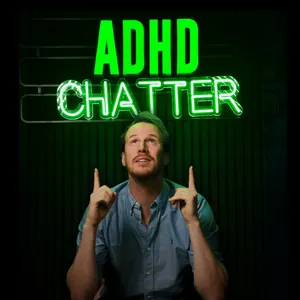Podcast Summary
Unexplained neurological symptoms: Consider conversion disorder: Conversion disorder is a complex condition causing neurological symptoms without organic explanations, including motor and sensory issues. Diagnosis requires careful evaluation and ruling out other medical causes.
Conversion disorder or functional neurological symptom disorder is a complex condition where individuals exhibit neurological symptoms without any organic explanation. Motor and sensory functioning can be affected, leading to symptoms such as weakness, paralysis, tremors, gait disorders, speech difficulties, seizures, anesthesia, and sensory loss. These symptoms don't align with other medical conditions and can be acute or persistent. Diagnosis requires careful evaluation, as a single symptom isn't enough. Symptoms like syncope, coma, absent speech volume, dysphonia, aphonia, dysarthria, globus, and diplopia can occur. The cause remains unclear, but it's essential to rule out other medical explanations. The symptoms don't align with other medical conditions and can be acute or persistent. It's crucial to consider this condition when dealing with unexplained neurological symptoms.
Symptoms of Conversion Disorder with no neurological cause: Conversion Disorder is a condition where individuals display neurological symptoms without a physiological explanation, often linked to trauma or stress, and may exhibit LaBelle indifference or secondary gain.
Conversion disorder is a condition where individuals experience symptoms that do not have a neurological cause. These symptoms can mimic neurological conditions, such as epilepsy, but upon clinical examination, there is no physiological explanation for them. People with conversion disorder may display symptoms like dissociation, depersonalization, derealization, and amnesia, often with a close temporal relationship to trauma or stress. They may also show a lack of concern about the implications of their symptoms, known as LaBelle indifference, or a secondary gain, meaning they have a motivation for displaying these symptoms. This condition typically peaks around the forties and is more common in females. It's important to remember that conversion disorder does not mean that the individual has a history of trauma or psychological stressor, but these factors can contribute to the development of the symptoms.
Assessments for diagnosing neurological and psychological conditions: The MMPI and Test of Memory and Malingering help diagnose conditions by detecting lying, identifying organic memory impairment, and providing critical item analysis.
The Minnesota Multiphasic Personality Inventory (MMPI) and the Test of Memory and Malingering are valuable assessments in diagnosing neurological and psychological conditions. The Test of Memory and Malingering, normed on an Alzheimer's population, can help identify individuals who are lying or feigning symptoms, as those with severe organic memory impairment recall significantly more pictures than someone intentionally faking symptoms. The MMPI, on the other hand, includes built-in validity scales that can detect lying, faking, overly defensive responses, and conversion hysteria. Additionally, it allows for critical item analysis to understand the individual's responses to each question. These assessments are crucial for solidifying diagnoses and identifying potential red flags such as multiple doctor visits with the same complaints, where symptoms may not fit the textbook definition for a formal medical diagnosis. Dissociative symptoms, anxiety disorders, depressive disorders, and personality disorders are common in individuals with conversion disorder.
The Complexity of Faking Illness: Some people genuinely believe in their illness despite lack of medical cause, while others feign symptoms for secondary gain. Recognizing the complex motivations behind these behaviors and the potential consequences of misjudging is crucial.
While some individuals may feign symptoms of various disorders for secondary gain, such as financial benefits or sympathy, others may genuinely believe in their condition despite a lack of medical cause. These individuals may even assimilate their role as someone with the disease into their identity, seeking positive reinforcement and psychological valence from their environment. An example given was the phenomenon of Munchausen Syndrome by Proxy, where individuals intentionally inflict harm on themselves or others to assume the sick role. However, it's important to remember that not all cases are black and white, and there are always exceptions. The line between faking and truly believing can be blurry, and it's crucial to approach each case with sensitivity and understanding. The speaker emphasized the importance of recognizing the complex motivations behind such behaviors and the potential consequences of misjudging someone's situation.
Understanding Hypochondriasis and Conversion Disorder: Hypochondriasis is an anxiety disorder marked by excessive fear of illness, while conversion disorder is a neurological condition with unexplained symptoms. Both conditions involve health concerns, but they differ significantly in nature and diagnosis.
Conversion disorder and hypochondriasis are two distinct conditions. Hypochondriasis, also known as illness anxiety disorder, involves an excessive and persistent fear of having a serious illness. Individuals with hypochondriasis may believe they have a disease despite medical reassurance. On the other hand, conversion disorder is characterized by neurological symptoms that are not due to organic causes. People with conversion disorder display these symptoms, often seeking validation from doctors. It's essential to understand that individuals with conversion disorder are not faking their symptoms, unlike those with hypochondriasis. They genuinely experience the symptoms, which can include seizures, tremors, or paralysis. In contrast, people with hypochondriasis are paralyzed by fear and anxiety about potential health issues. Moreover, the symptoms of conversion disorder do not occur randomly. They often manifest in specific situations or when the person is under stress. For instance, a tremor in one hand might disappear when the person is asked to copy the doctor's movements with their other hand. In summary, while both conditions involve concerns about health, they differ significantly. Hypochondriasis is an anxiety disorder, while conversion disorder is a neurological condition characterized by unexplained symptoms. Understanding these differences is crucial for accurate diagnosis and effective treatment.
Understanding Conversion Disorders: A Complex Approach: Conversion disorders involve physical symptoms without organic causes. Patients may have researched extensively and provide confusing information. Asking for a medication list can provide context. Avoid labeling as liars, understand motivations. Approach with skepticism and empathy.
Conversion disorders, which involve physical symptoms without apparent organic causes, can be complex cases for healthcare professionals. During my experience, I've noticed that individuals with conversion disorders have often done extensive research on their symptoms. However, the information they provide may not always make sense, especially when it comes to physical complaints. As a neurologist, I might ask for a list of medications to help build a picture of their medical history. While this isn't foolproof, it can provide valuable context. For example, fibromyalgia, a condition with unclear causes, can be challenging to diagnose. It's essential not to label individuals with conversion disorders as liars, but understanding their motivations, such as seeking validation, can be helpful. Paul Paget, the only person with a diagnosis of acquired savant syndrome, serves as an example of the unique nature of some disorders. Ultimately, conversion disorders require a thoughtful and nuanced approach, combining both skepticism and empathy.
Understanding Conversion Disorder: Symptoms and Links to Personality Disorders: Conversion Disorder is a complex condition with unexplained neurological symptoms, linked to personality disorders for validation, not psychosis. Diagnosis is crucial, treatment is therapy, and symptoms can be exhausting.
Conversion disorder, also known as functional neurological symptom disorder, is a complex condition where individuals present with neurological symptoms that cannot be explained by medical tests or lab results. These symptoms are often used to elicit attention and reinforce a person's belief in their condition. The disorder can be linked to personality disorders, such as borderline or histrionic, where self-esteem is dependent on external validation. While the symptoms may seem delusional, they are not necessarily indicative of psychosis. The diagnosis of conversion disorder is crucial as it can be mistaken for other neurological conditions. Treatment typically involves therapy, and the belief in the symptoms can be exhausting for both the individual and healthcare providers. The disorder can progress and potentially become delusional, but with proper testing and assessment, it can be distinguished from other neurological conditions.
Seeking diagnostic clarity for mental health conditions: Individuals with borderline personality disorder may be misdiagnosed or prescribed ineffective medications due to overlapping symptoms. A neuropsychological evaluation can provide answers and hope.
Diagnostic clarity is crucial for individuals with mental health conditions, especially those with borderline personality disorder, as they may be misdiagnosed or prescribed ineffective medications due to the disorder's overlapping symptoms with other conditions. Seeking a neuropsychological evaluation can provide answers and hope for those struggling. Additionally, Cora and I, as mental health professionals, believe in giving back to humanity through our podcast, which is not monetized. We value the time spent helping those in need, even if it's uncompensated. Today, I ask for your help in saving the McCullough herd, one of the oldest horse families in the US, which is facing a potentially dangerous roundup by the Bureau of Land Management. I encourage you to contact Sandy Sisti on Instagram (sandysisti) for more information on how to help save these precious animals.
Take Action to Save the McCullough Peaks Horses: Contact BLM director Tracy Stone, share info on social media, and contact Cody Chamber of Commerce to save McCullough Peaks horses, bring economic benefits, and prevent extinction.
Individuals can make a difference by taking action to save the McCullough Peaks horses from a unnecessary roundup. Here are some steps suggested during the discussion: 1. Contact Tracy Stone, the director of the Bureau of Land Management (BLM), at 202-208-3801 (phone) or 970-256-4997 (fax), to express concerns and request a halt to the roundup. 2. Share information on social media to raise awareness and influence public opinion. 3. Contact the Cody Chamber of Commerce at info@codychamber.org or 307-587-2777 to express support for the horses and the economic benefits they bring to the area. These actions can help save the horses from permanent removal and potentially extinction, and demonstrate the importance of advocacy and community involvement. Remember, every little bit helps, so please consider taking action if this cause resonates with you.






